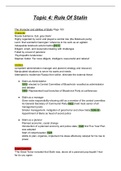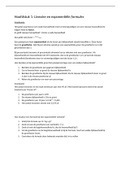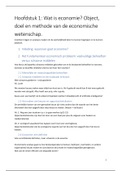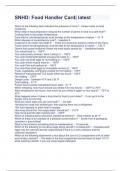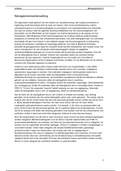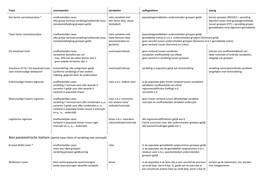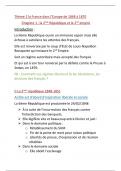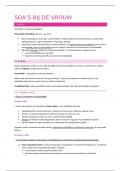Topic 4: Rule Of Stalin
The character and abilities of Stalin Page 183
Character
Nicolai Sukhanov ‘dull, grey blank’
Highly regarded by Lenin and played a central role (the Bolshevik party)
Lenin ‘that wonderful Gerorgian’ reference to his work as an agitator
Indespsible bolshevik activist before 1917.
Diligent, smart, and resourceful dealing with challenges
Fulled by a level of paranoia
‘Psychopathic tendencies’
Stephen Kotkin ‘Far more diligent, intelligent, resourceful and rational’
Abilities
competent administration manager and planner( strategy and resource)
Manipulated situations to serve his wants and needs
Attempted to modernize Russia from within, eliminate the external threat
● Stalin as Administertor
1912- elected to Central Committee of Bloashvick- excelled as administrator
and debater
1905- Represented local branches of Bloashvick Party at conferences
● Stalin as a manager
Given extra responsibility-showing skill as a member of the central committee
As General Secretary of Communist Party(1922) held most senior of all
management posts
Sinister management- instigation of great terror and show trials(1936-38)
Appointment of Beria as head of secret police
● Stalin as a planner
Planned economic, social change
Introduction of a planned economy and police state; 1928 first Five Year Plan
was adopted
Start of collectivisation 1928
Ability to plan, organize, implement his ideas effectively catalyst for his rise to
power
Exam Question
“The Great Terror revealed that Stalin was, above all a paranoid psychopath’ How
far do you agree
, Point-Overall, Stalin's Adoption of the Great Terror did not reveal that he was mainly
concerned with eliminating imagined opposition
Point- Although Stalin did show psychopathic tendencies in dealing with opposition,
he also revealed that he could be diligent, smart, and resourceful in dealing with the
challenges he faced.’
The rivalries and divisions within the Bolshevik Party Including “ Left” and “Right
Internal rivalries under Lenin:
1. After the PG's overthrow, some called for a coalition with other socialist groups
(Kamenev/Zinoviev/Rykov etc). Lenin mostly rejected this, except for allowing a few
left-wing SRs to join.
2. Treaty of Brest-Litovsk (1917) was hated by the left (mostly Trotsky) - countered
this with the end of the war. Meant 290,000 miles of land were given up and Russia
withdrew from WW1.
3. War Communism - seen as harsh by some of the party, so Lenin was pressured
into the NEP, heightening tensions/divisions. Right = temporary concession to
capitalism was good/Left = betrayal of Communist principles.
After Lenin's death, there was a power struggle, this highlighted the factions that still
existed within the party.
- Dispute as to whether there should be the continuation of NEP.
- Many demanded that a more openly democratic form of gov should be
adopted.
- The left, under Trotsky's guidance, continued to press for Permanent
revolution.
Contenders for the leadership of the Party
Stalin, Trotsky
Socialism in One country Vs Permanent Revolution
● Socialism in one country = Stalin
- Consolidate Lenin's revolution by turning USSUR into a modern state,
capable of defending itself against internal/external enemies
● Permanent Revolution= Trostky
- Revolution was a continuous process(rising took place from country to
country).
- Nation task to export revolution. To guarantee its survival
- Believed USSR ‘incapable to hold its own against conservative Europe’
The character and abilities of Stalin Page 183
Character
Nicolai Sukhanov ‘dull, grey blank’
Highly regarded by Lenin and played a central role (the Bolshevik party)
Lenin ‘that wonderful Gerorgian’ reference to his work as an agitator
Indespsible bolshevik activist before 1917.
Diligent, smart, and resourceful dealing with challenges
Fulled by a level of paranoia
‘Psychopathic tendencies’
Stephen Kotkin ‘Far more diligent, intelligent, resourceful and rational’
Abilities
competent administration manager and planner( strategy and resource)
Manipulated situations to serve his wants and needs
Attempted to modernize Russia from within, eliminate the external threat
● Stalin as Administertor
1912- elected to Central Committee of Bloashvick- excelled as administrator
and debater
1905- Represented local branches of Bloashvick Party at conferences
● Stalin as a manager
Given extra responsibility-showing skill as a member of the central committee
As General Secretary of Communist Party(1922) held most senior of all
management posts
Sinister management- instigation of great terror and show trials(1936-38)
Appointment of Beria as head of secret police
● Stalin as a planner
Planned economic, social change
Introduction of a planned economy and police state; 1928 first Five Year Plan
was adopted
Start of collectivisation 1928
Ability to plan, organize, implement his ideas effectively catalyst for his rise to
power
Exam Question
“The Great Terror revealed that Stalin was, above all a paranoid psychopath’ How
far do you agree
, Point-Overall, Stalin's Adoption of the Great Terror did not reveal that he was mainly
concerned with eliminating imagined opposition
Point- Although Stalin did show psychopathic tendencies in dealing with opposition,
he also revealed that he could be diligent, smart, and resourceful in dealing with the
challenges he faced.’
The rivalries and divisions within the Bolshevik Party Including “ Left” and “Right
Internal rivalries under Lenin:
1. After the PG's overthrow, some called for a coalition with other socialist groups
(Kamenev/Zinoviev/Rykov etc). Lenin mostly rejected this, except for allowing a few
left-wing SRs to join.
2. Treaty of Brest-Litovsk (1917) was hated by the left (mostly Trotsky) - countered
this with the end of the war. Meant 290,000 miles of land were given up and Russia
withdrew from WW1.
3. War Communism - seen as harsh by some of the party, so Lenin was pressured
into the NEP, heightening tensions/divisions. Right = temporary concession to
capitalism was good/Left = betrayal of Communist principles.
After Lenin's death, there was a power struggle, this highlighted the factions that still
existed within the party.
- Dispute as to whether there should be the continuation of NEP.
- Many demanded that a more openly democratic form of gov should be
adopted.
- The left, under Trotsky's guidance, continued to press for Permanent
revolution.
Contenders for the leadership of the Party
Stalin, Trotsky
Socialism in One country Vs Permanent Revolution
● Socialism in one country = Stalin
- Consolidate Lenin's revolution by turning USSUR into a modern state,
capable of defending itself against internal/external enemies
● Permanent Revolution= Trostky
- Revolution was a continuous process(rising took place from country to
country).
- Nation task to export revolution. To guarantee its survival
- Believed USSR ‘incapable to hold its own against conservative Europe’

